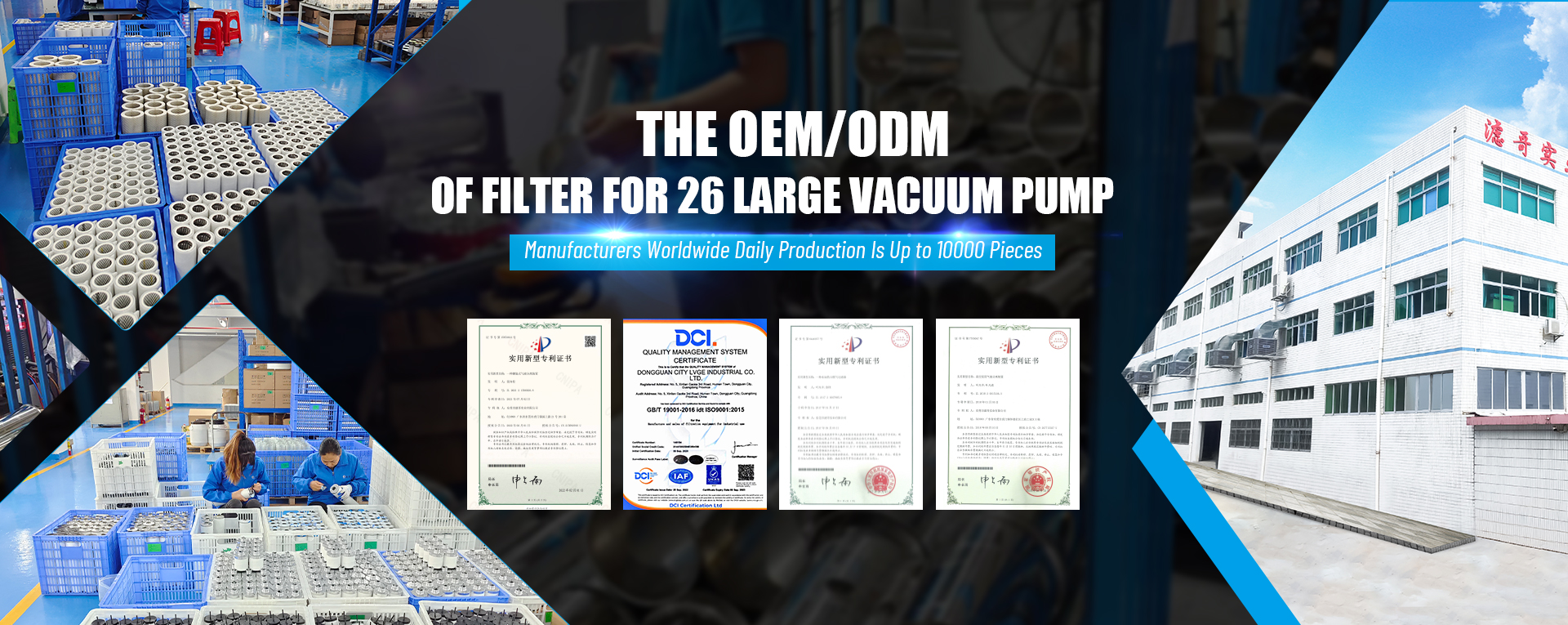The dangers of without replacing the oil mist separator
Vacuum pumps play a crucial role in various industries, providing efficient removal of gases and creating a vacuum environment. Just like any other machinery, vacuum pumps require regular maintenance to ensure their optimal performance and prevent potential issues from arising. One critical component that often gets overlooked is the oil mist separator.
The oil mist separator, as the name suggests, is responsible for separating oil and gas within the vacuum pump. It performs a vital function, preventing the oil from being eliminated along with the gas while ensuring that only clean, oil-free gas is released into the system. However, many operators tend to neglect this crucial part, leading to severe consequences.
One of the primary dangers of not replacing the oil mist separator of the vacuum pump for an extended period is the contamination of the entire system. Over time, the separator becomes clogged and saturated with impurities, impacting the efficiency of the pump. As a result, the vacuum pump struggles to generate the required vacuum pressure, leading to decreased performance and potentially affecting the overall productivity of the operation.
The oil mist separator acts as a barrier, preventing oil and other lubricants from escaping into the exhaust system. If the separator is not replaced regularly, the oil can pass through and contaminate the entire vacuum pump system. This can lead to a decrease in the lubricating properties of the oil, causing excessive wear and tear on the pump's components. Ultimately, this can result in costly repairs or even the need for a complete replacement of the vacuum pump.
Moreover, the failure to replace the oil and gas separator can have adverse effects on the quality of the produced vacuum. When the separator is clogged, it reduces the efficiency of gas removal, leading to poor gas quality. Contaminated gas can introduce impurities into the system, leading to unsatisfactory processing results or compromised product quality. In certain industries, such as pharmaceuticals or electronics manufacturing, where stringent cleanliness standards are crucial, the consequences of not replacing the separator can be even more severe, including product defects or even safety hazards.
In addition to the financial and productivity impacts, neglecting the oil mist separator can also pose safety risks. Clogged separators have the potential to cause pressure build-up within the vacuum pump system, resulting in leaks or even equipment failure. This can lead to unpredictable accidents, including explosions, fires, or other hazardous scenarios. Regular replacement of the separator helps ensure the safe operation of the vacuum pump and minimizes the likelihood of such incidents.
In conclusion, it is essential to prioritize the maintenance of vacuum pump systems, including regular replacement of the separator. Neglecting this critical component can result in contamination, decreased performance, compromised product quality, costly repairs, and safety hazards. By paying attention to the separator's condition and replacing it as recommended by the manufacturer, industries can ensure the smooth operation of their vacuum pump systems, maintain productivity, and safeguard their personnel and equipment.
Post time: Oct-18-2023







